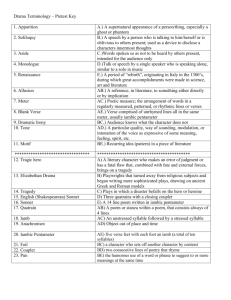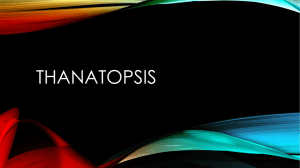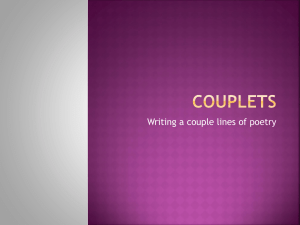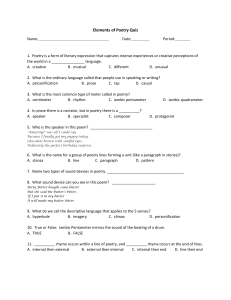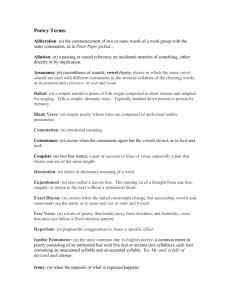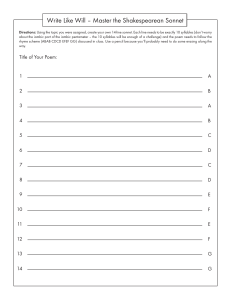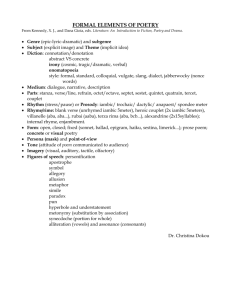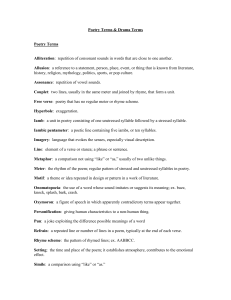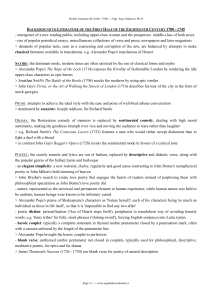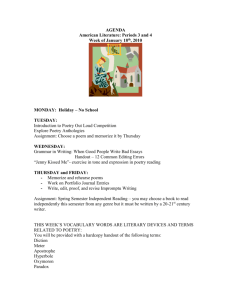Types of Poetry
advertisement
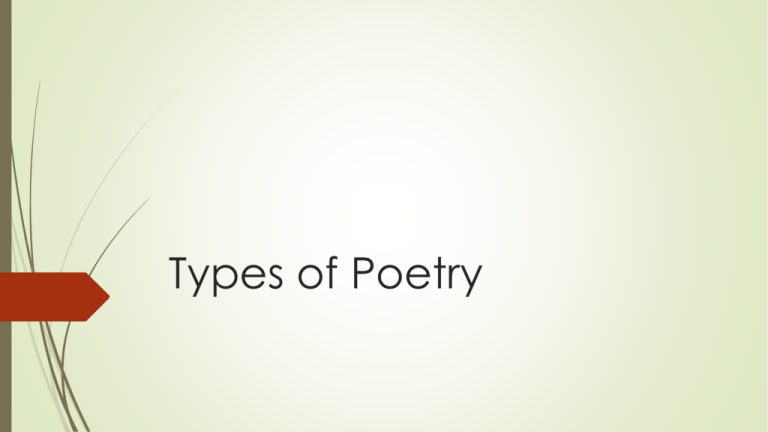
Types of Poetry Haiku Originally Japanese 3 line verse form 1st and 3rd lines have 5 syllables The 2nd line has 7 syllables Purpose: present a single vivid emotion by means of images from nature Free Verse Poetry not written in regular rhythmical patterns Purpose: capture the rhythms of speech Main form of contemporary poetry Blank Verse Poetry written in unrhymed iambic pentameter lines Iambic Pentameter: Each line has 5 stressed and 5 unstressed syllables Widely used by Elizabethan writers like William Shakespeare Ballad A songlike poem that tells a story Most are written in 4-6 line stanzas and have regular rhythms and rhyme schemes Often features a refrain Refrain: regularly repeated line or group of lines Epic A long narrative poem about the deeds of gods or heroes Ex: Homer’s The Odyssey Sonnet 14 lines Usually written in rhymed iambic pentameter The most famous is the English, or Shakespearean, sonnet Consists of 3 quatrains and 1 couplet Quatrain: 4-line stanza Couplet: 2 line stanza Limerick Consists of 5 lines: 3 long and 2 short Rhyme Scheme: AABBA Humorous and frequently inappropriate Popularized by Edward Lear in the 19th century

